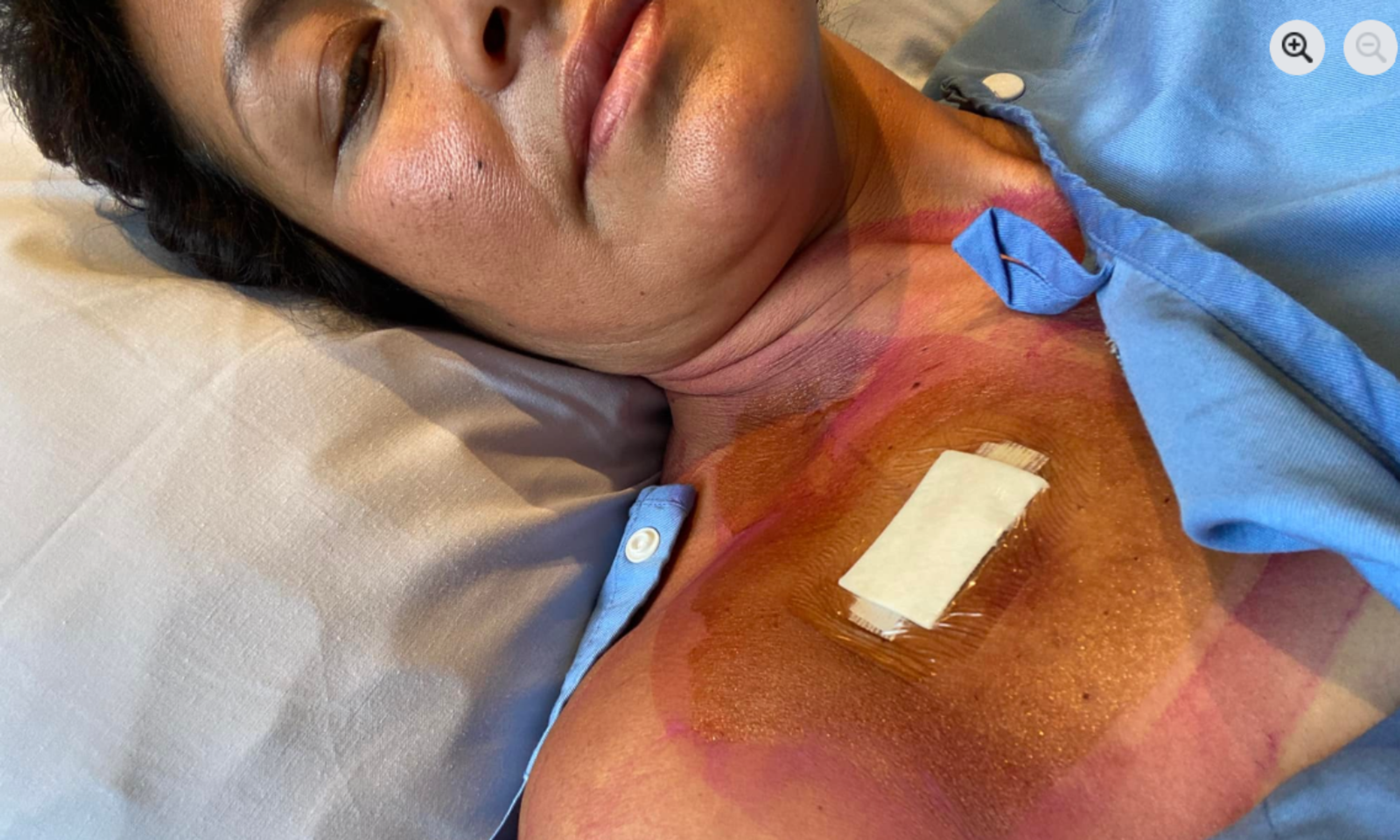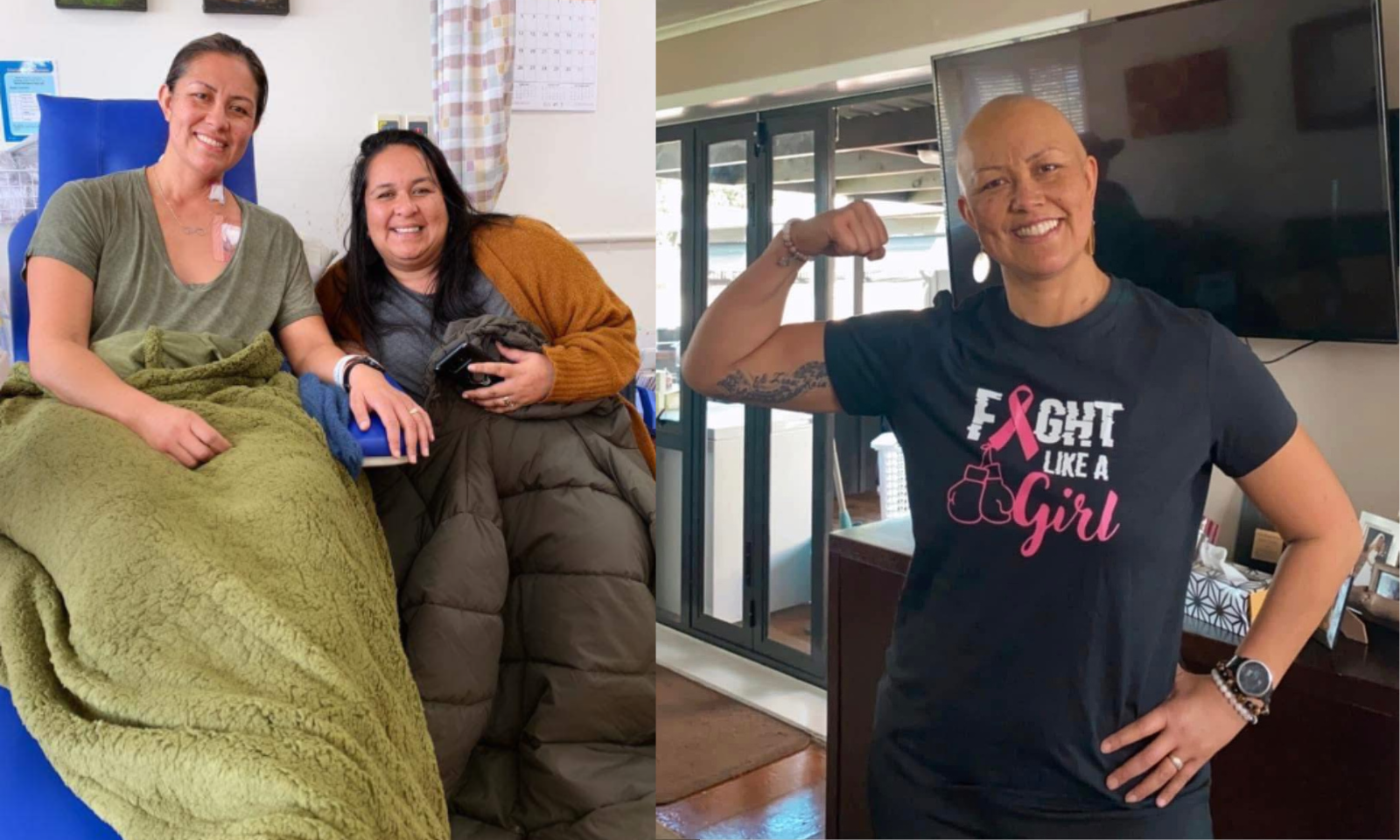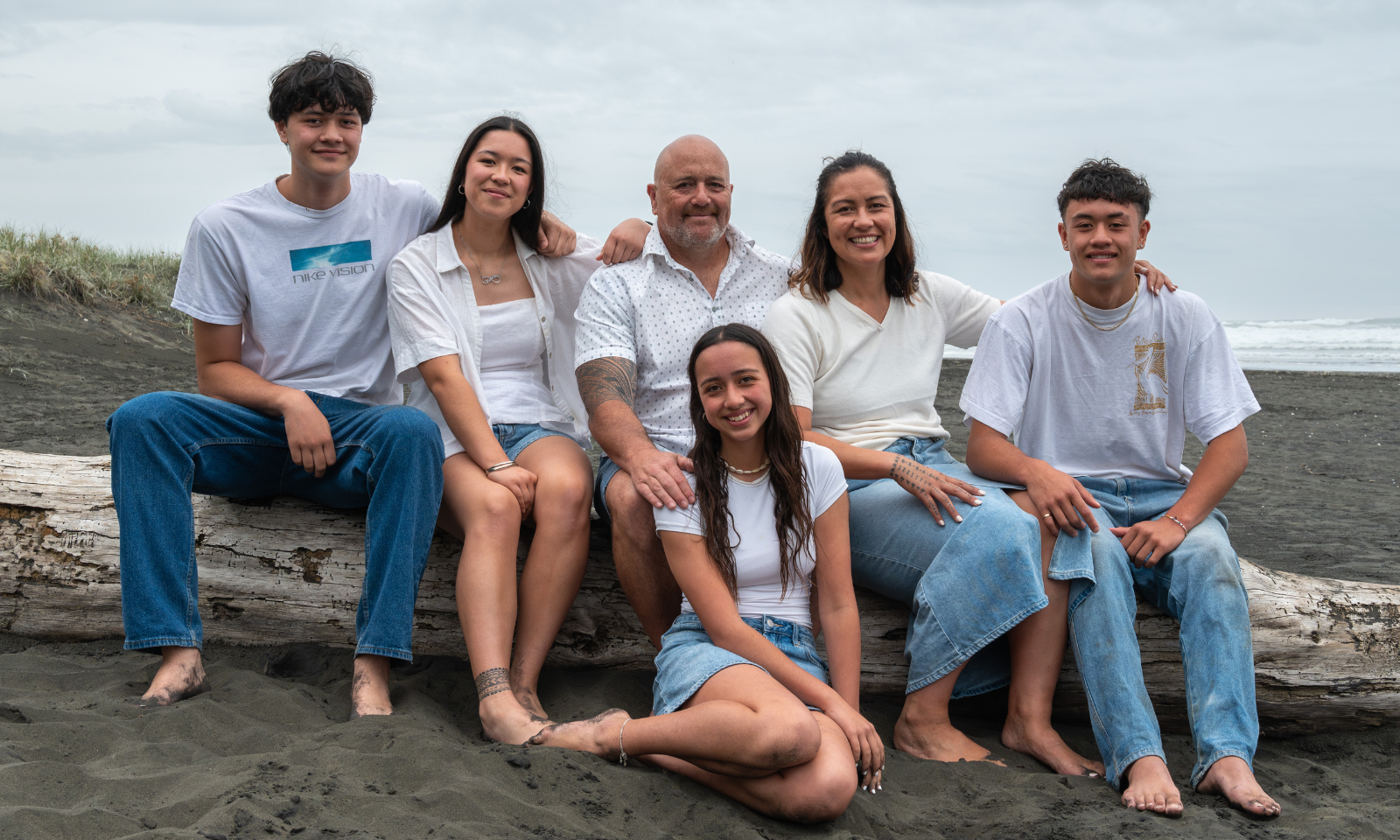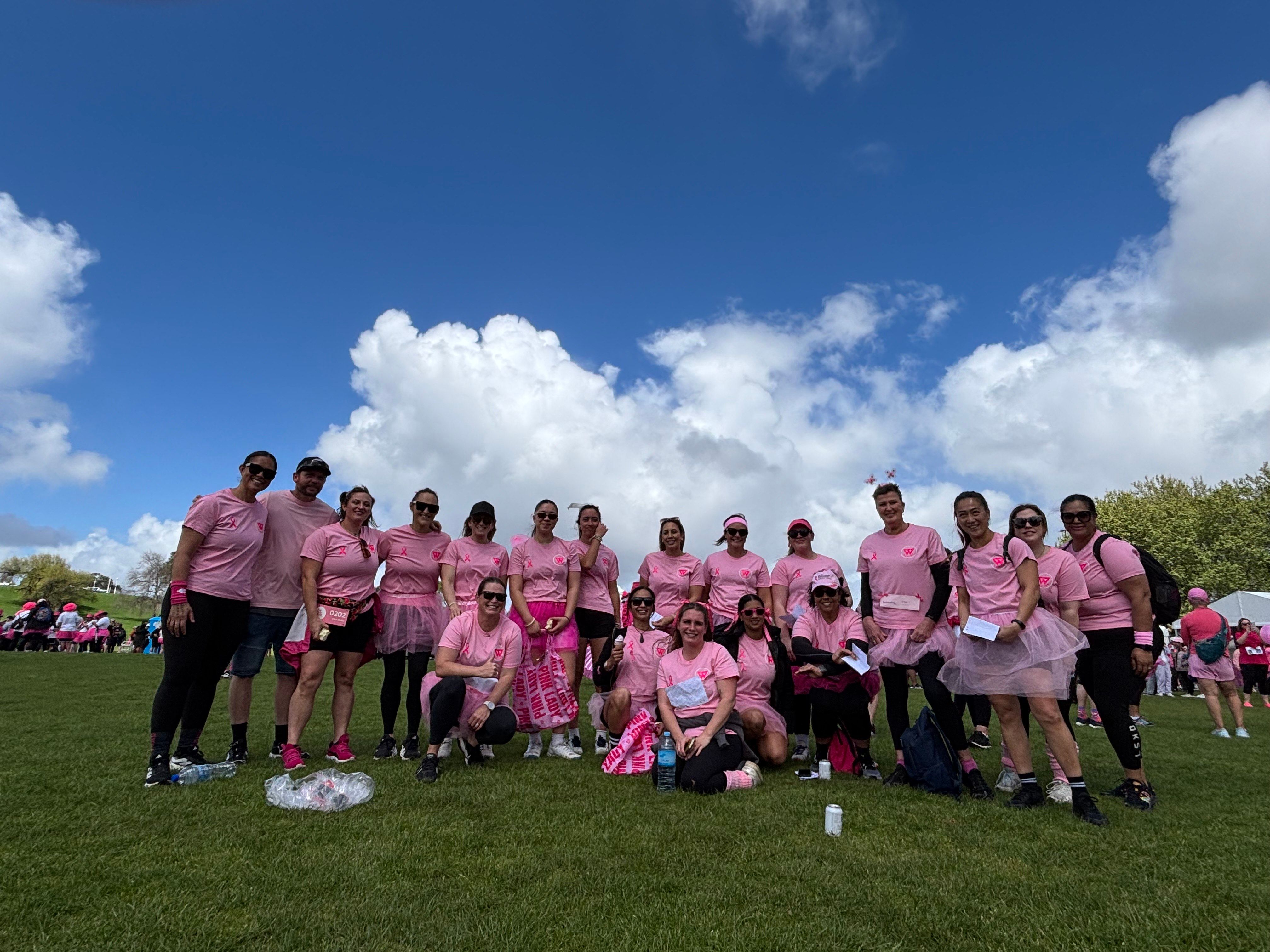

Laina Martin was diagnosed with breast cancer at the age of 44.
Photo/Supplied
Sāmoan gym owner urges Pacific women to check for breast cancer
Survivor Laila Martin is urging Pasifika wāhine to trust their instincts, a decision she says saved her life.


Pacific pride on the big stage: ‘Chief of War’ wins Best Ensemble at the Spirit Awards




Pacific pride on the big stage: ‘Chief of War’ wins Best Ensemble at the Spirit Awards


When Laila Vea Martin found a lump in her right breast at the age of 44, she nearly ignored it.
Martin urges regular self-examinations.
Speaking with Carolanne Toetu’u on Pacific Days for Breast Cancer Awareness Month, Martin says she knew something was wrong after receiving her biopsy result.
“The pain had gone and I thought, maybe it’s nothing,” she says. “If I’d waited for my free mammogram at 46, I might not be here today.
“I could not feel the lump with my fingertips. You need to be lying down flat and feeling it with your palm, and it felt like an eyeball. It was the C word that no one wants to hear, cancer.
“To be honest, I was in shock, and a lot of fear came to my heart. I said to myself, ‘I’ve lived my life healthy, I’m a good person. Why is this happening to me'?”
The mother of four has Sāmoan, German, and Chinese heritage and was diagnosed with HER2-positive (human epidermal growth factor receptor) breast cancer in 2021, an aggressive form that spreads quickly.
Watch Laila Martin's full interview below.
Breast cancer is the most common cancer among women in Aotearoa, with Pacific women often diagnosed at a later stage and facing poorer outcomes.
Free mammograms are currently available to women aged 45 to 69 every two years.
Earlier this month, the Government announced that free breast screening will be extended to women up to age 74, with full implementation expected by 2029.

Laila Martin at her first chemotherapy treatment (left), which made her hair fall out. Photo/Supplied
Finding strength and support through treatment
Two months later, Martin’s treatment began, and she describes it as an ongoing journey.
“I’m not going to lie, chemo sucks,” she says. “It is really tough, and the side effects are different every single time. I ended up having six treatments of chemo, my right breast removed, a whole year of infusions every three weeks, and I’m on a hormone tablet for three years.
“I got a little machine put into me, which meant that they could infuse the chemo through that machine instead of my veins. I had my MRIs, my oncologist, all of those.”
She recalls some of her lowest moments and the emotional toll it took on her.
“I just didn't leave the room. I could hear everything happening outside my door. I wanted to get up and help, but I couldn’t physically move my body. It had taken not just the cancer away, it was taking all my goodness away. I remember sitting there and all I could hear was my daughter getting the kids ready, doing the lunches, and I just cried.”

Laila Martin (second from right), with her husband Pete (centre) and their children: Eli, Raiha, Kaia and Isaac. Photo/Supplied
Running her gym in Waiuku became part of her healing process.
“West Coast Fitness gave me purpose and routine,” she says. “It wasn’t just exercise, it healed me. It reminded me that movement and connection can help you through the hardest battles.”
The gym community has since joined her mission to raise awareness, taking part in a 10-kilometre walk and pink-themed events for Breast Cancer Awareness Month.
“I’ll ask my members, have you checked your breasts? Have you booked your mammogram? It’s about starting honest conversations, especially for our Pacific women, who can be shy talking about it.”

The gym community at West Coast Fitness has been a source of support, joining in a 10 kilometre walk to raise breast cancer awareness. Photo/Supplied
Pacific women and breast cancer
Breast cancer is the most commonly diagnosed cancer among Pacific people, with 166 cases each year, making it the second leading cause of cancer death after lung cancer, with 34 deaths annually. The five-year survival rate for Pacific women is 82 per cent, compared to 86 per cent for European women.
Martin says cultural humility and selflessness can stop women from prioritising their health, and she hopes her story encourages more women to take action.
“Our Pacific women often think, ‘Oh, it’ll go away, it’s fine,’ or they put everyone else first. But early detection is going to save your life. Be aware of your body, be aware of the changes, and act on them. You’re not a hypochondriac. It took me a while to talk about this because it’s so raw, and it’s only now that I’ve got the courage, there are so many young women going through breast cancer, and it’s just not good enough.”
Ah-Leen Rayner, chief executive of Breast Cancer Foundation NZ, says earlier access to treatments like Kisqali could prevent breast cancer from progressing to an incurable stage.
“For too long, our health system has funded medicines only once cancer has spread, when treatment becomes about prolonging life rather than saving it,” she says in a statement. “New Zealand women deserve the same chance to live cancer-free as those in countries like Australia, where this type of treatment is already available for earlier-stage patients.”